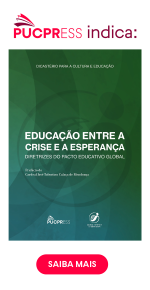Rm 10,5-15
Traduction and rethorical impact
DOI:
https://doi.org/10.7213/2175-1838.14.002.DS04Abstract
The Holy Scriptures fascinate millions of people and, over them, there are dedication and efforts by exegetes, biblical theologians, sociologists, anthropologists, archaeologists, etc. While some of them work using the original language texts (Hebrew, Aramaic and Greek), others use vernacular translations. The fact is that a translation, no matter how faithful it tries to be, in a way, it is an interpretation, due to the terminological choice of the target language, which is not always able to achieve the polysemy of the text in the original language. The prologue of the book of Ecclesiasticus already pointed to this. So, as much as translators try and try to be “impartial”, there are hermeneutical assumptions that are hardly left aside in the act of translating. There is not, so to speak, a complete objective translation. In this sense, the present paper proposes to offer a segmented translation of Rm 10,5-15 from the Koine Greek with which it was written, followed by a syntactic-grammatical analysis, seeking to verify the internal logic of the terminology used in the elaboration of the propositions, allowing the translation to be as consistent as possible with the original meaning. Furthermore, the article submits the text in question, from a methodological point of view, to Greco-Latin and Semitic rhetorical analysis, since in Rom 10,5-15 there are several quotations and allusions to Old Testament texts. It is believed that the adoption of these procedures is valid to obtain a translation more consistent with the original language and with the meanings that were intended by the author.
Keywords: Bible. Religious literature. Linguistics. Methodology. Translation.
Downloads
Metrics
Downloads
Published
How to Cite
Issue
Section
License
O(s) autor(es) transfere(m), por meio de cessão, à EDITORA UNIVERSITÁRIA CHAMPAGNAT, pessoa jurídica de direito privado, inscrita no CNPJ/MF sob o n.º 76.659.820/0009-09, estabelecida na Rua Imaculada Conceição, n.º 1155, Prado Velho, CEP 80.215-901, na cidade de Curitiba/PR, os direitos abaixo especificados e se compromete a cumprir o que segue:
- Os autores afirmam que a obra/material é de sua autoria e assumem integral responsabilidade diante de terceiros, quer de natureza moral ou patrimonial, em razão de seu conteúdo, declarando, desde já, que a obra/material a ser entregue é original e não infringe quaisquer direitos de propriedade intelectual de terceiros.
- Os autores concordam em ceder de forma plena, total e definitiva os direitos patrimoniais da obra/material à EDITORA UNIVERSITÁRIA CHAMPAGNAT, a título gratuito e em caráter de exclusividade.
- A CESSIONÁRIA empregará a obra/material da forma como melhor lhe convier, de forma impressa e/ou on line, inclusive no site do periódico da EDITORA UNIVERSITÁRIA CHAMPAGNAT, podendo utilizar, fruir e dispor do mesmo, no todo ou em parte, para:
- Autorizar sua utilização por terceiros, como parte integrante de outras obras.
- Editar, gravar e imprimir, quantas vezes forem necessárias.
- Reproduzir em quantidades que julgar necessária, de forma tangível e intangível.
- Adaptar, modificar, condensar, resumir, reduzir, compilar, ampliar, alterar, mixar com outros conteúdos, incluir imagens, gráficos, objetos digitais, infográficos e hyperlinks, ilustrar, diagramar, fracionar, atualizar e realizar quaisquer outras transformações, sendo necessária a participação ou autorização expressa dos autores.
- Traduzir para qualquer idioma.
- Incluir em fonograma ou produção audiovisual.
- Distribuir.
- Distribuir mediante cabo, fibra ótica, satélite, ondas ou qualquer outro sistema que permite ao usuário realizar a seleção da obra ou produção para recebê-la em tempo e lugar previamente determinados por quem formula a demanda e nos casos em que o acesso às obras ou produções se faça por qualquer sistema que importe em pagamento pelo usuário.
- Incluir e armazenar em banco de dados, físico, digital ou virtual, inclusive nuvem.
- Comunicar direta e/ou indiretamente ao público.
- Incluir em base de dados, arquivar em formato impresso, armazenar em computador, inclusive em sistema de nuvem, microfilmar e as demais formas de arquivamento do gênero;
- Comercializar, divulgar, veicular, publicar etc.
- Quaisquer outras modalidades de utilização existentes ou que venham a ser inventadas.
- Os autores concordam em conceder a cessão dos direitos da primeira publicação (ineditismo) à revista, licenciada sob a CREATIVE COMMONS ATTRIBUTION LICENSE, que permite o compartilhamento do trabalho com reconhecimento da autoria.
- Os autores autorizam a reprodução e a citação de seu trabalho em repositórios institucionais, página pessoal, trabalhos científicos, dentre outros, desde que a fonte seja citada.
- A presente cessão é válida para todo o território nacional e para o exterior.
- Este termo entra em vigor na data de sua assinatura e é firmado pelas partes em caráter irrevogável e irretratável, obrigando definitivamente as partes e seus sucessores a qualquer título.
- O não aceite do artigo, pela EDITORA UNIVERSITÁRIA CHAMPAGNAT, tornará automaticamente sem efeito a presente declaração.



